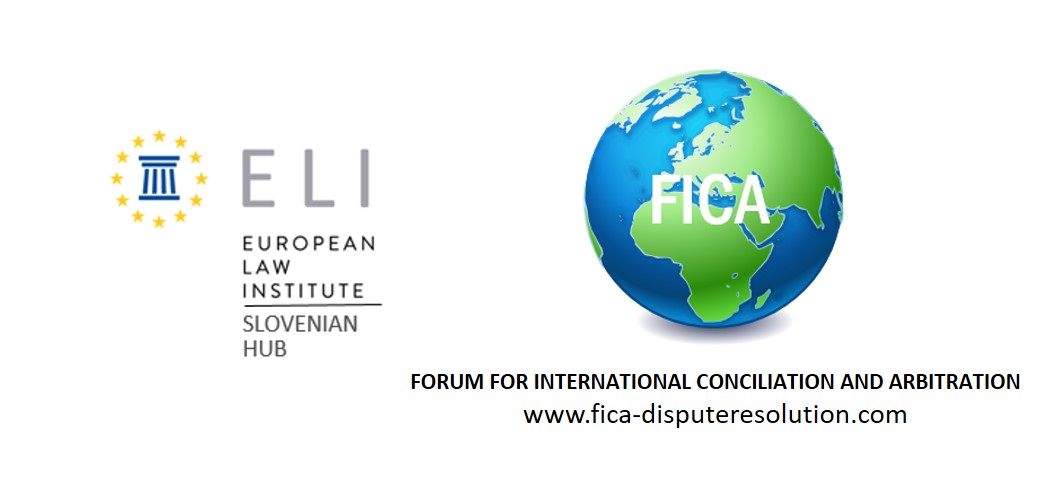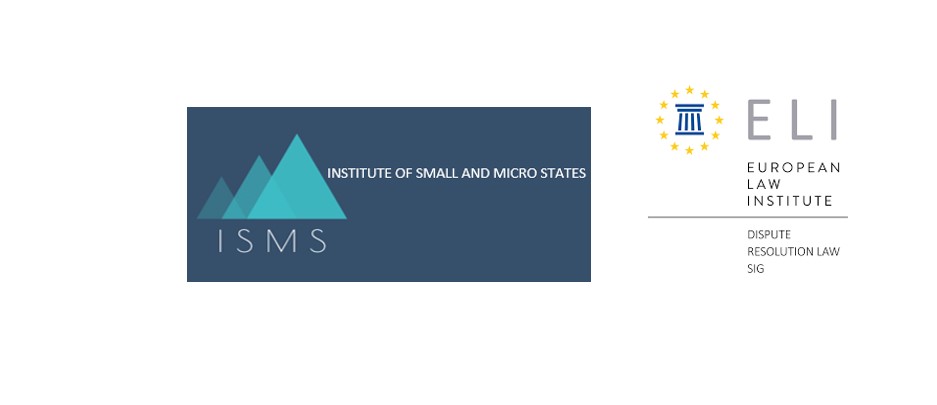Written by William S. Dodge (Professor, University of California, Davis, School of Law)
& Wenliang Zhang (Associate Professor, Renmin University of China Law School)
In Shanghai Yongrun Investment Management Co. v. Kashi Galaxy Venture Capital Co., the Supreme Court of New York (New York’s court of first instance) denied enforcement of a Chinese court judgment on the ground that the judgment “was rendered under a system which does not provide impartial tribunals or procedures compatible with the requirements of due process of law.” The decision disagrees with every other U.S. and foreign court to have considered the adequacy of the Chinese judicial system in the context of judgments recognition. In recent years, there has been a growing trend in favor of the recognition of Chinese judgments in the United States and U.S. judgments in China. See William S. Dodge & Wenliang Zhang, Reciprocity in China-U.S. Judgments Recognition, 53 Vand. J. Transnat’l L. 1541 (2020). Unless this recent decision is overturned on appeal, it threatens to reverse the trend, to the detriment of judgment creditors in both countries.
In 2016 Shanghai Yongrun purchased an interest in Kashi Galaxy. In 2017, Kashi Galaxy agreed to repurchase that interest for RMB 200 million, an agreement that Kashi Galaxy allegedly breached by paying only part of the repurchase price. The agreement was governed by Chinese law and provided that suits could be resolved by courts in Beijing. In 2018, Shanghai Yongrun sued Kashi Galaxy, Maodong Xu, and Xu’s wife in the Beijing No. 1 Intermediate People’s Court. After a trial in which defendants were represented by counsel, the court granted judgment in favor of Shanghai Yongrun. The Beijing Higher People’s Court affirmed the judgment on appeal, but it could not be enforced in China because no assets were available within the court’s jurisdiction.
In 2020, Shanghai Yongrun brought an action against Kashi Galaxy and Xu in New York state court, seeking to have the Chinese judgment recognized and enforced. Article 53 of New York’s Civil Practice Law and Rules (CPLR) has adopted the 1962 Uniform Foreign Money-Judgments Recognition Act (1962 Uniform Act), which provides that final money judgments rendered by foreign courts are enforceable in New York unless one of the grounds for non-recognition set forth in CPLR 5304 is established. These grounds include that the foreign court did not have personal jurisdiction, that the foreign court did not have subject matter jurisdiction, that the defendant did not receive notice of the foreign proceeding, that the judgment was obtained by fraud, that the judgment is repugnant to the public policy of the state, that the judgment conflicts with another final judgment, that the judgment is contrary to a forum selection clause, that personal jurisdiction was based only on service, and that the judgment is for defamation and provided less protection for speech than would be available in New York. The defendants raised none of these grounds for non-recognition. Instead, they raised the broadest and least frequently accepted ground: that “the judgment was rendered under a system which does not provide impartial tribunals or procedures compatible with the requirements of due process of law.” CPLR 5304(a)(1).
To find a systemic lack of due process in the Chinese judicial system, the New York court relied entirely on the State Department’s Country Reports on Human Rights Practices for 2018 and 2019. In particular, the court quoted the observations that Chinese “[j]udges regularly received political guidance on pending cases, including instructions on how to rule, from both the government and the [Chinese Communist Party], particularly in politically sensitive cases” and that “[c]orruption often influenced court decisions.” The court held that these country reports “conclusively establish as a matter of law that the PRC judgment was rendered under a system that does not provide impartial tribunals or procedures compatible with the requirements of due process of law in the United States.”
The implications of this ruling are broad. If the Chinese judicial system suffers from a systemic lack of due process, then no Chinese court judgments may ever be recognized and enforced under New York law. What is more, ten other states have adopted the 1962 Uniform Act, and an additional twenty-six states have adopted the updated 2005 Uniform Foreign-Country Money Judgments Recognition Act (2005 Uniform Act), which contains the same systemic due process ground for non-recognition. If followed in other jurisdictions, the New York court’s reasoning would make Chinese judgments unenforceable throughout much of the United States.
But it seems unlikely that other jurisdictions will follow suit or that the New York court’s decision will be upheld on appeal. U.S. decisions denying recognition on systemic due process grounds are rare. The leading cases have involved extreme and unusual circumstances: a Liberian judgment rendered during that country’s civil war when the judicial system had “collapsed,” Bridgeway Corp. v. Citibank, 201 F.3d 134, 138 (2d Cir. 2000), and an Iranian judgment against the sister of the former Shah, Bank Melli Iran v. Pahlavi, 58 F.3d 1406 (9th Cir. 1995). Although other courts have considered State Department country reports to be relevant in considering claims of systemic due process, none has found them to be dispositive. For example, the Fifth Circuit rejected a claim that Moroccan courts suffered from systemic lack of due process notwithstanding a statement in the 2009 country report that “in practice the judiciary . . . was not fully independent and was subject to influence, particularly in sensitive cases.” DeJoria v. Maghreb Petroleum Exploration, S.A., 804 F.3d 373, 381 (5th Cir. 2015). This language about Moroccan courts is quite similar to the country report statements about China that the New York court found conclusive.
With respect to China specifically, no U.S. court had previously denied recognition based on a systemic lack of due process. To the contrary, a prior New York state court decision held that “the Chinese legal system comports with the due process requirements,” Huizhi Liu v. Guoqing Guan, Index No. 713741/2019 (N.Y. Sup. Ct., Jan. 7, 2020), and a federal court in California concluded that “the Chinese court was an impartial tribunal.” Qinrong Qiu v. Hongying Zhang, 2017 WL 10574227, at *3 (C.D. Cal. 2017). Other U.S. decisions have specifically noted that the party resisting enforcement had not alleged systemic lack of due process as a ground for non-recognition. See Global Material Technologies, Inc. v. Dazheng Metal Fibre Co., 2015 WL 1977527, at *7 (N.D. Ill. 2015); Hubei Gezhouba Sanlian Industrial Co. v. Robinson Helicopter Co., 2009 WL 2190187, at *6 (C.D. Cal. 2009).
China has been promoting the rule of law, and its legal system is modernizing to follow internationally accepted standards. The independence of China’s judiciary is guaranteed by its Constitution and other laws. To promote international trade and investment, China has emphasized the independence and impartiality of its courts. Other countries have repeatedly recognized and enforced Chinese judgments, including Australia, Canada, Germany, Israel, the Netherlands, New Zealand, Singapore, South Korea, and the United Kingdom. When parties have questioned the integrity of the Chinese judicial system as a whole, courts have rejected those arguments. Recently, in Hebei Huaneng Industrial Development Co. v. Deming Shi, [2020] NZHC 2992, the High Court of New Zealand found that the Chinese court rendering the judgment “was part of the judicial branch of the government of the People’s Republic China and was separate and distinct from legislative and administrative organs. It exercised a judicial function. Its procedures and decision were recognisably judicial.” When claims of improper interference are raised in the context of judgments recognition, the New Zealand court suggested, “the better approach is to see whether justice was done in the particular case.”
The New York court’s decision in Shanghai Yongrun is not only contrary to past decisions involving the enforcement of Chinese judgments in the United States and other countries. It also threatens to undermine the enforceability of U.S. judgments in China. Under Article 282 of the Civil Procedure Law of the People’s Republic of China, foreign judgments are recognized and enforced “in accordance with the principle of reciprocity.” For U.S. judgments, Chinese courts in cases like Liu v. Tao (Reported on by Ron Brand) and Nalco Co. v. Chen have found China’s reciprocity requirement to be satisfied by U.S. decisions that recognized and enforced Chinese judgments. If U.S. courts change course and begin to hold that China’s judiciary can never produce enforceable judgments, Chinese courts will certainly change course too and deny recognition to U.S. judgments for lack of reciprocity.
Maintaining reciprocity with China does not require U.S. courts to enforce every Chinese judgment. U.S. courts have denied recognition and enforcement of Chinese judgments when the Chinese court lacked personal jurisdiction, Folex Golf Indus., Inc. v. O-Ta Precision Industries Co., 603 F. App’x 576 (9th Cir. 2015), or when the Chinese judgment conflicted with another final judgment, UM Corp. v. Tsuburaya Prod. Co., 2016 WL 10644497 (C.D. Cal. 2016). But so far, U.S. courts have treated Chinese judgments the same as judgments from other countries, applying the case-specific grounds for non-recognition in an evenhanded way. The systemic due process ground on which the New York court relied in Shanghai Yongrun is fundamentally different because it holds Chinese judgments to be categorically incapable of recognition and enforcement.
New York may be on the verge of expanding the case-specific ground for non-recognition by adopting the 2005 Uniform Act to replace the 1962 version that is currently in place. A bill to adopt the 2005 Act has passed both the Assembly and the Senate in New York. The 2005 Act adds two grounds for non-recognition not found in the 1962 Act: (1) that “the judgment was rendered in circumstances that raise substantial doubt about the integrity of the rendering court with respect to the judgment”; and (2) that “the specific proceeding in the foreign court leading to the judgment was not compatible with the requirements of due process of law.” These grounds, already found in the laws of twenty-six other states that have adopted the 2005 Uniform Act, would allow New York courts to review foreign judgments for corruption and for lack of due process in the specific case without having to condemn the entire foreign judiciary as incapable of producing recognizable judgments. It is worth noting that the defendants in Shanghai Yongrun did not claim that there was any defect in the Chinese proceedings that led to the judgment against them.
Many court systems around the world are imperfect. The case-specific grounds for non-recognition found in the 1962 and 2005 Uniform Acts allow U.S. courts to refuse enforcement to foreign judgments on a range of case-specific grounds from lack of jurisdiction or notice, to public policy, to corruption or lack of due process. These case-specific grounds largely eliminate the need for U.S. courts to declare that an entire judicial system is incapable of producing valid judgments.





